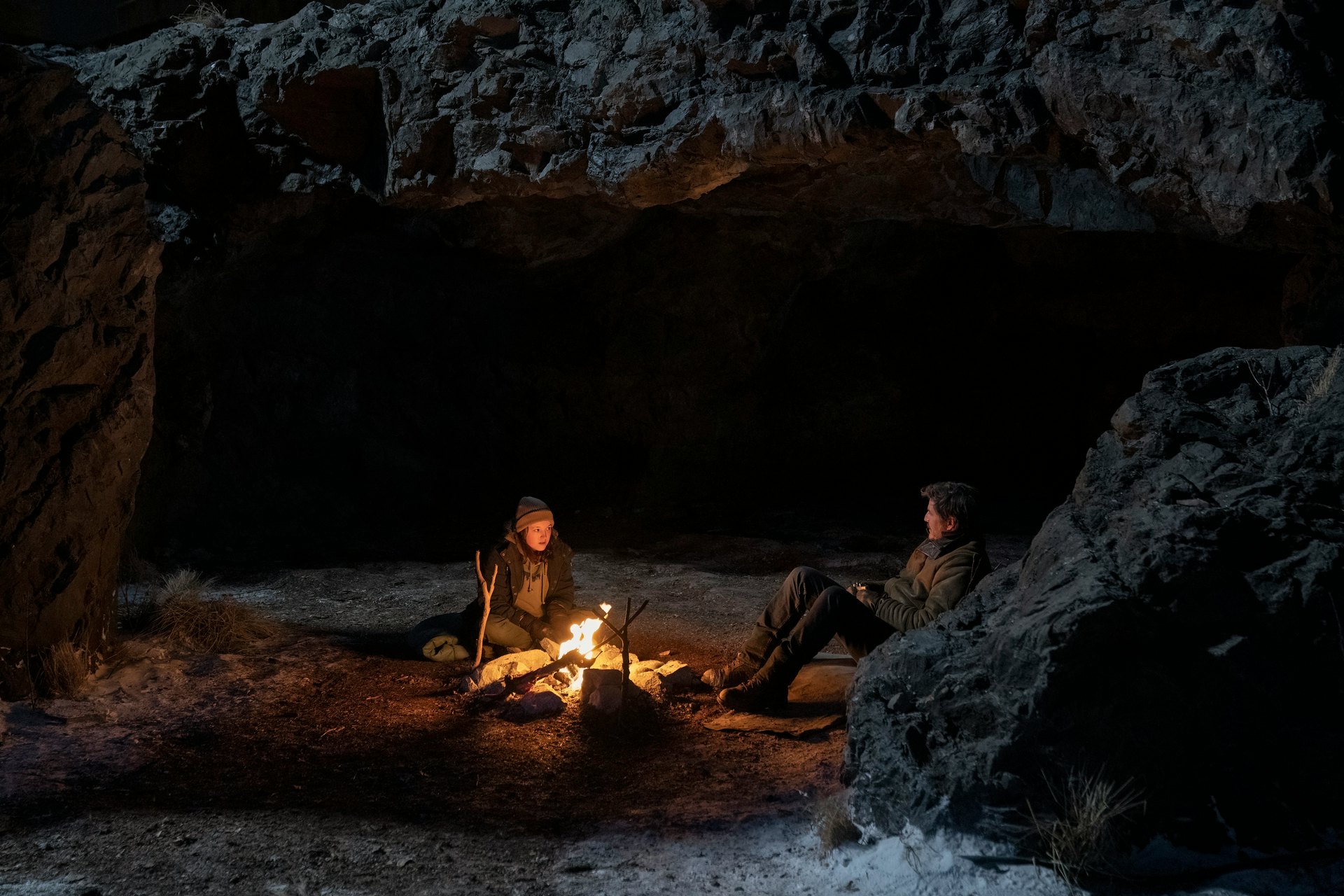
Once again, HBO’s acclaimed television drama The Last of Us brings to the surface what has only been subtext in the PlayStation games. Last time, it was Joel’s watch. This time, it’s Joel’s anxiety.
In “Kin,” the latest episode of the series from Craig Mazin and game co-director Neil Druckmann, Joel (Pedro Pascal) suffers chest pain illustrative of a panic attack. It’s something audiences haven’t seen from Joel before, in any medium, until now. It begins after Joel and Ellie (Bella Ramsey) meet an isolated couple in Wyoming, where they learn about the dangerous territory ahead of them.
The games never made a show of Joel’s panic attacks. However, not only has Joel always had anxiety, but in a behind-the-scenes podcast interview, both Mazin and Druckmann reveal why it’s playing a bigger deal in the series.
Bottles on the Nightstand
In the original The Last of Us, released for PlayStation 3 in 2013, the prologue chapter (where players control Joel’s daughter Sarah) allows exploration of Joel’s bedroom where you can find bottles of medicine on his nightstand. On the PS3, it’s hard to make out what the labels say due to the technical capabilities of the console. But with The Last of Us Part 1 — a high-fidelity remastered edition for the powerful PlayStation 5 — players can actually read the labels for the first time.
As pointed out by YouTube channel PlayStation Source, Joel keeps anti-anxiety medication and pills for high blood pressure. While none of Joel’s medical issues are in the game’s story, this fact brings new context into how Joel behaves in the game. Especially towards Ellie.

“He Has Also Failed Her”
The HBO version of The Last of Us turns this subtext about Joel into, well, text. Joel has anxiety. In The Last of Us Podcast, hosted by actor Troy Baker, Mazin and Druckmann reveal that the demands of adaptation to a different medium necessitated making this a more explicit part of the show.
“A lot of our conversations about this episode is, what is the impact on Joel from the experience of Henry and Sam?” Druckmann says. “You see some of that as they exit the cabin as he seizes his chest.” Mazin confirms Joel is suffering a panic attack, “and he doesn’t know why.”
“Panic attacks feel very much like heart attacks,” Mazin says, “It’s your body telling you you’re in terrible danger, but you don’t understand yet why. So much of what this episode is about is Joel coming to terms with how terrified he is, suddenly, that she is going to die and it’s going to be his fault.”
Adds Mazin:
“If you’ve been paying attention along the way, what you will see is, for as many times Joel has helped her, he has also failed her. Those are the things he dwells on. Like a lot of us, if you have core shame or core trauma the way Joel does, the things you do well are discounted. Your failures, anything that reminds you of the tragedy of your past, you magnify in your mind and your heart until it threatens to subsume you.”

Druckmann says the medium of games require its own way of delivering information. “When you’re playing the game, the camera’s quite far back,” he says, “so there’s no way to see a lot of what’s going on with the character’s face. A lot of it has to be conveyed with dialogue.” To illustrate distance between Joel and Ellie, there was a distinct change in tone in their words. “It’s almost like the relationship has gone backwards,” Druckmann says.
But TV has its own ways of telling stories. “Because we can have more intimiate moments where the camera’s right up there in your face, we can do it in much more subtle ways,” Druckmann says, adding he loves Ellie’s reaction to Joel’s pain, equating it to the disappointment you feel when you see your parents get old.
“When you look at your parents who’ve been protecting you their entire life, you don’t want to accept any weakness. So she’s getting angry with him, which I felt as well as my parents get older. You get angry they’re not invincible.”
As always, The Last of Us Podcast is mandatory listening after every episode airs on Sunday. Between Druckmann, Mazin, and Baker — who played Joel in the games — three are a well of insight into one of the best TV dramas of the year. This week’s episode in particular sheds more light into how the demands of television require new kinds of emphasis on subtelties that you don’t get by simply recreating the video game.
The games didn’t make Joel’s stress into a mechanic — imagine a meter bar where players stop moving to “calm down” — but the TV show is an exhibition into how an adaptation can transform a bit of background information into something greater.







